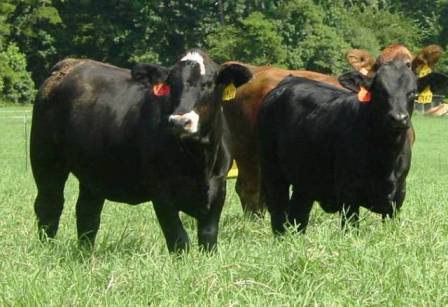 Research conducted by Dr. Ron Randel and his colleagues has shown temperamental cattle are less productive than are well-behaved cattle. Beef cattle temperament (calm vs. wild) affects average daily gain, response to vaccination and carcass quality. Seed stock producers should consider temperament in their culling criteria. Measures of temperament taken earlier in a calf’s life (at or before weaning) are more predictive than those taken later. Commercial beef producers should consider temperament in purchasing herd bulls and replacement females. More details of this research are available in the following linked reports:
Research conducted by Dr. Ron Randel and his colleagues has shown temperamental cattle are less productive than are well-behaved cattle. Beef cattle temperament (calm vs. wild) affects average daily gain, response to vaccination and carcass quality. Seed stock producers should consider temperament in their culling criteria. Measures of temperament taken earlier in a calf’s life (at or before weaning) are more predictive than those taken later. Commercial beef producers should consider temperament in purchasing herd bulls and replacement females. More details of this research are available in the following linked reports:
1) Calm Cattle Have Better Responses to Weaning Vaccinations
3) Relationships Between Temperament and Growth Performance in Beef Cattle
5) Steer Temperament Influences Stress Responsiveness to Handling Typical in Beef Cattle Management
Producers restocking herds reduced because of drought conditions should consider temperament in the heifers and cows that they are purchasing. The decision will affect future productivity.